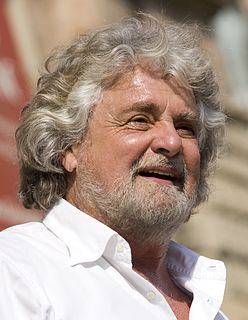A Quote by Bill Gates
Vaccines are a miracle; they're fantastic. Anything that makes people hesitate to give their children these vaccines according to the recommended schedule creates risk. Risk for the children who don't get vaccinated and risk for children, some of whom don't have an immune system, so they're benefiting from the fact that the community protection means the disease doesn't get to them.
Related Quotes
My own personal view is that vaccines are unsafe and worthless. I will not allow myself to be vaccinated again. .....The bottom line is that infectious diseases are least likely to affect (and to kill) those who have healthy immune systems. I no longer believe that vaccines have any role to play in the protection of the community or the individual. Vaccines may be profitable but, in my view, they are neither safe nor effective. I prefer to put my trust in building up my immune system.
People are used to dealing with risk. You are told if you smoke, you are at higher risk of lung cancer. And I think people are able to also understand, when they are told they are a carrier for a genetic disease, that is not a risk to them personally but something that they could pass on to children.
Vaccines have played a fundamental role in eradicating terrible illnesses such as polio, diphtheria, and hepatitis. However, they bring a risk associated with side-effects that are usually temporary and surmountable... but, in very rare cases, can be as severe as getting the same disease you're trying to be immune to.
The main problem, certainly, for the people who will not get vaccinated with Thimerosal, which was put into polio vaccine. And the belief was that it may cause autism. And there's been an awful lot done in terms of studies in Western Europe, Canada, the United States, and no correlation was found between Thimerosal and autism from those children who took vaccines. Indeed, when Thimerosal was taken out of many of these vaccines, the autism rate in the United States still rose.
Managing risk is a key variable, frankly, all aspects of life, business is just one of them, and one of the things that most people do in terms of managing risk, that's actually bad thinking, is they think they can manage risk to zero. Everything has some risk to it. You know, you drive your car down the street, a drunk driver may hit you. So what you're doing is you're actually trying to get to an acceptable level of risk.
It is true that there are some parents who have concerns about vaccines, but while we hear about these concerns a lot in the media, I don't want people to think that the majority of parents out there do not believe in vaccines and then most kids aren't getting vaccinated. In fact, it's exactly the opposite.
You cannot immunize sick, malnourished children and expect them to get away with it. You'll kill far more children than would have died from natural infection...It needs to be appreciated that children in developing countries are at a much greater risk of complications from vaccination and from mercury toxicity...because poor nutrition, parasitic and bacterial infections and low birth weight.




































